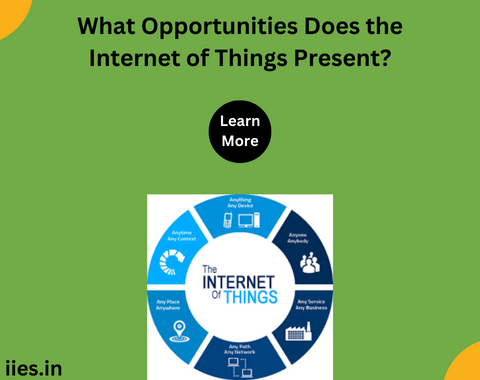Homeowners can remotely control and monitor these devices through smartphone apps, creating a seamless and personalized living experience. From adjusting the temperature to checking security cameras, IoT empowers individuals to manage their homes efficiently and with greater convenience
Industrial Revolution 4.0: Smart Manufacturing
In the industrial landscape, IoT plays a pivotal role in ushering in the era of Industry 4.0. Smart manufacturing leverages IoT to enhance efficiency, reduce downtime, and optimize production processes. Connected sensors embedded in machinery collect real-time data, allowing for predictive maintenance and minimizing the risk of equipment failures. The integration of IoT in manufacturing not only improves operational efficiency but also facilitates the creation of agile, responsive production systems capable of adapting to changing demands.
Healthcare: Remote Monitoring and Personalized Medicine
IoT is revolutionizing healthcare by enabling remote patient monitoring and personalized medicine. Wearable devices, such as smartwatches and fitness trackers, collect valuable health data that can be shared with healthcare professionals in real-time. This facilitates early detection of health issues and allows for proactive interventions. Moreover, IoT is driving the development of smart medical devices, such as insulin pumps and pacemakers, which can be remotely monitored and adjusted based on individual patient needs.
Smart Cities: Enhancing Urban Living
The concept of smart cities relies heavily on IoT to enhance urban living by improving infrastructure, transportation, and public services. Smart traffic management systems utilize IoT sensors to optimize traffic flow, reduce congestion, and enhance public safety. Additionally, IoT-enabled waste management systems can optimize garbage collection routes, reducing costs and environmental impact. The integration of IoT in smart cities enhances overall efficiency, sustainability, and the quality of life for residents.
Agriculture: Precision Farming and Smart Agriculture
In agriculture, IoT is driving a paradigm shift towards precision farming and smart agriculture. Connected sensors gather data on soil quality, moisture levels, and crop health, enabling farmers to make informed decisions about irrigation, fertilization, and pest control. This data-driven approach maximizes crop yield while minimizing resource usage. Drones and autonomous machinery equipped with IoT devices further contribute to the efficiency and sustainability of modern farming practices.
Supply Chain Optimization
IoT is reshaping supply chain management by providing real-time visibility and control over the movement of goods. From warehouses to transportation, connected sensors track the location, condition, and status of products throughout the supply chain. This level of transparency allows for better inventory management, reduces the risk of product spoilage, and enhances overall supply chain efficiency. Businesses can make data-driven decisions to optimize routes, minimize delays, and respond quickly to unforeseen events.
Energy Management and Conservation
The integration of IoT in the energy sector has far-reaching implications for resource management and conservation. Smart grids, equipped with IoT devices, enable real-time monitoring of energy consumption, grid performance, and equipment health. This facilitates the efficient distribution of energy, reduces waste, and enhances the overall reliability of the electrical grid. Additionally, IoT-enabled smart homes and buildings can dynamically adjust energy usage based on demand, contributing to sustainability efforts.
Enhanced Data Analytics and Decision-Making
IoT generates an unprecedented amount of data, and this influx of information has paved the way for advanced analytics and decision-making. Businesses and organizations can harness the power of big data analytics to derive valuable insights from the vast amount of data collected by IoT devices. This data-driven decision-making process allows for better understanding of customer behavior, market trends, and operational performance. By making informed decisions based on real-time data, companies can stay agile, responsive, and competitive in today’s fast-paced business environment.
Improved Personalization in Retail and Marketing
Retailers are leveraging IoT to create more personalized and immersive shopping experiences for customers. IoT devices, such as beacons and smart shelves, enable retailers to track customer movements within stores, analyze preferences, and deliver targeted promotions in real-time. This level of personalization enhances customer engagement, increases sales, and fosters brand loyalty. Moreover, IoT enables inventory management systems to automatically restock products, reducing out-of-stock instances and ensuring a smoother shopping experience.
Connected Vehicles and Intelligent Transportation
IoT is revolutionizing the automotive industry with the advent of connected vehicles and intelligent transportation systems. Cars equipped with IoT sensors and connectivity features can communicate with each other, as well as with infrastructure such as traffic lights and road signs. This connectivity enhances road safety, reduces traffic congestion, and paves the way for autonomous vehicles. Moreover, IoT-enabled telematics systems provide real-time data on vehicle performance, enabling proactive maintenance and efficient fleet management for businesses.

